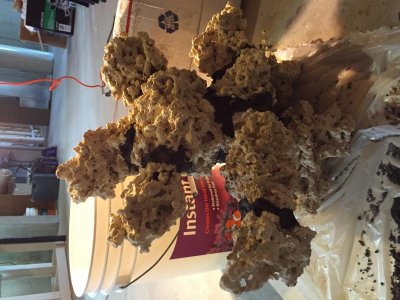nuxx
.Registered Member
Some rocks do better than others with no adhesives / rods.
We used acid washed Marco Rocks and they really stuck together very well, very sharp.
We have some very active tangs and triggers in the tank and lots of flow. I'm not really worried about them falling over.
Had intended to use epoxy and rods, but never needed to.
We used acid washed Marco Rocks and they really stuck together very well, very sharp.
We have some very active tangs and triggers in the tank and lots of flow. I'm not really worried about them falling over.
Had intended to use epoxy and rods, but never needed to.

